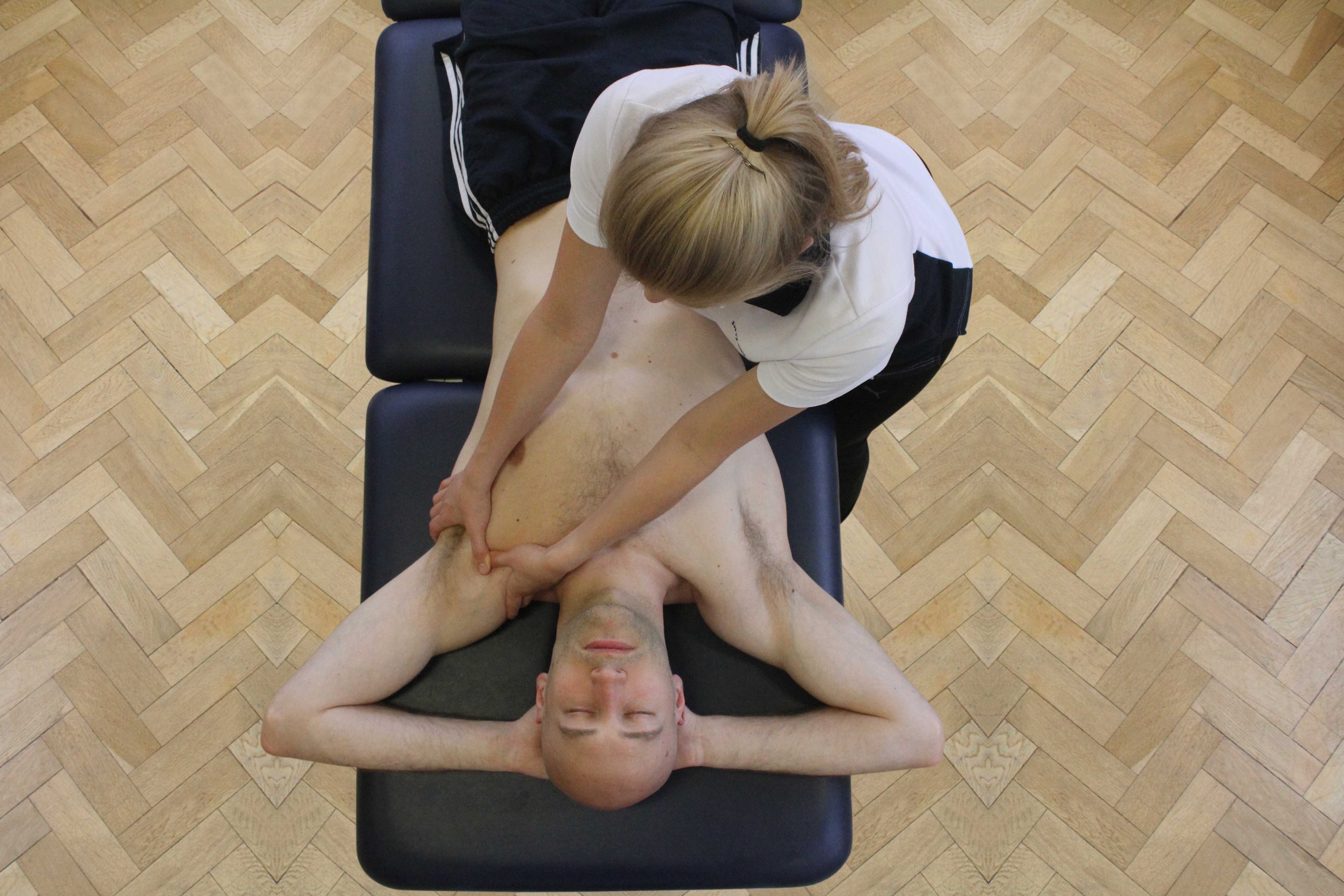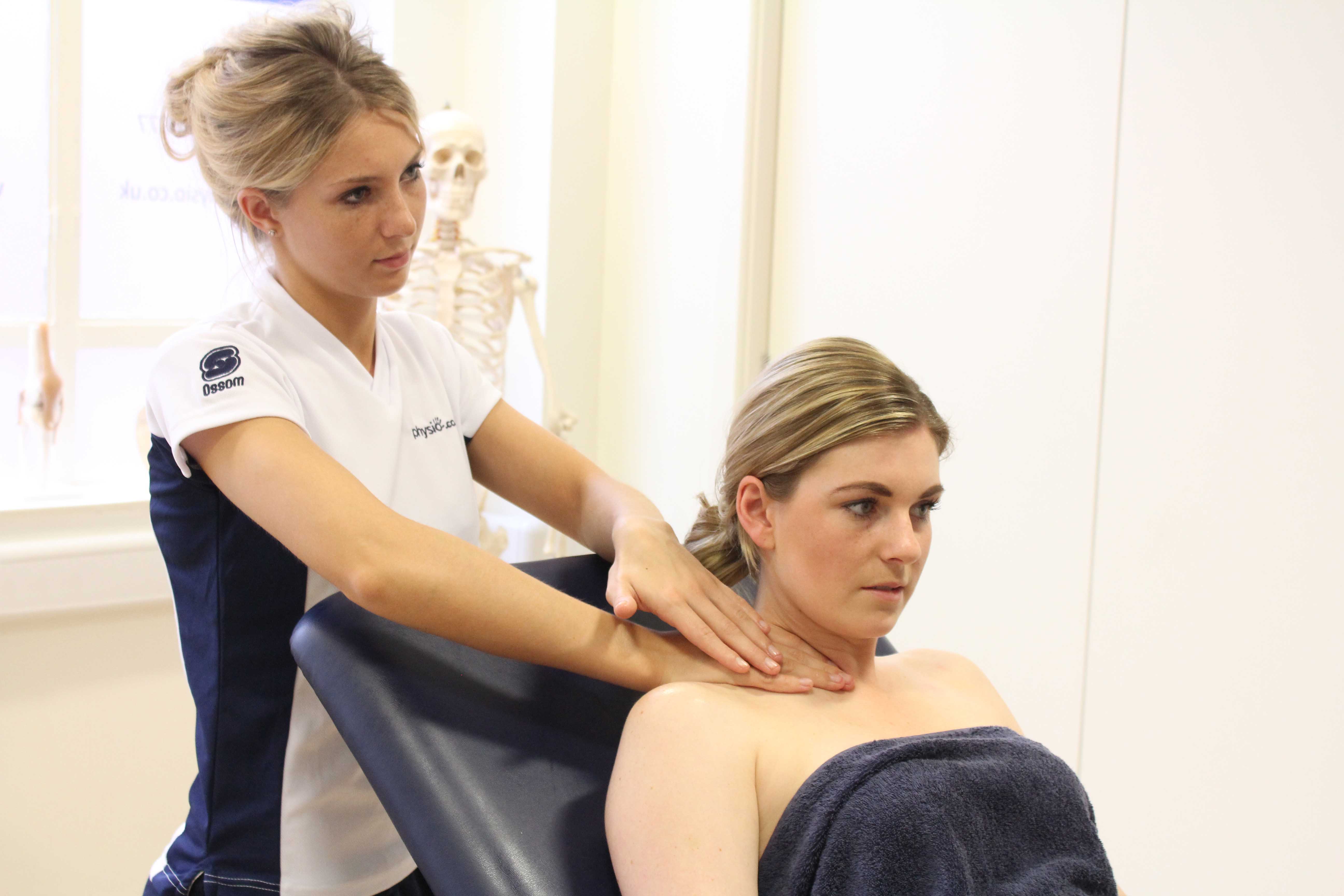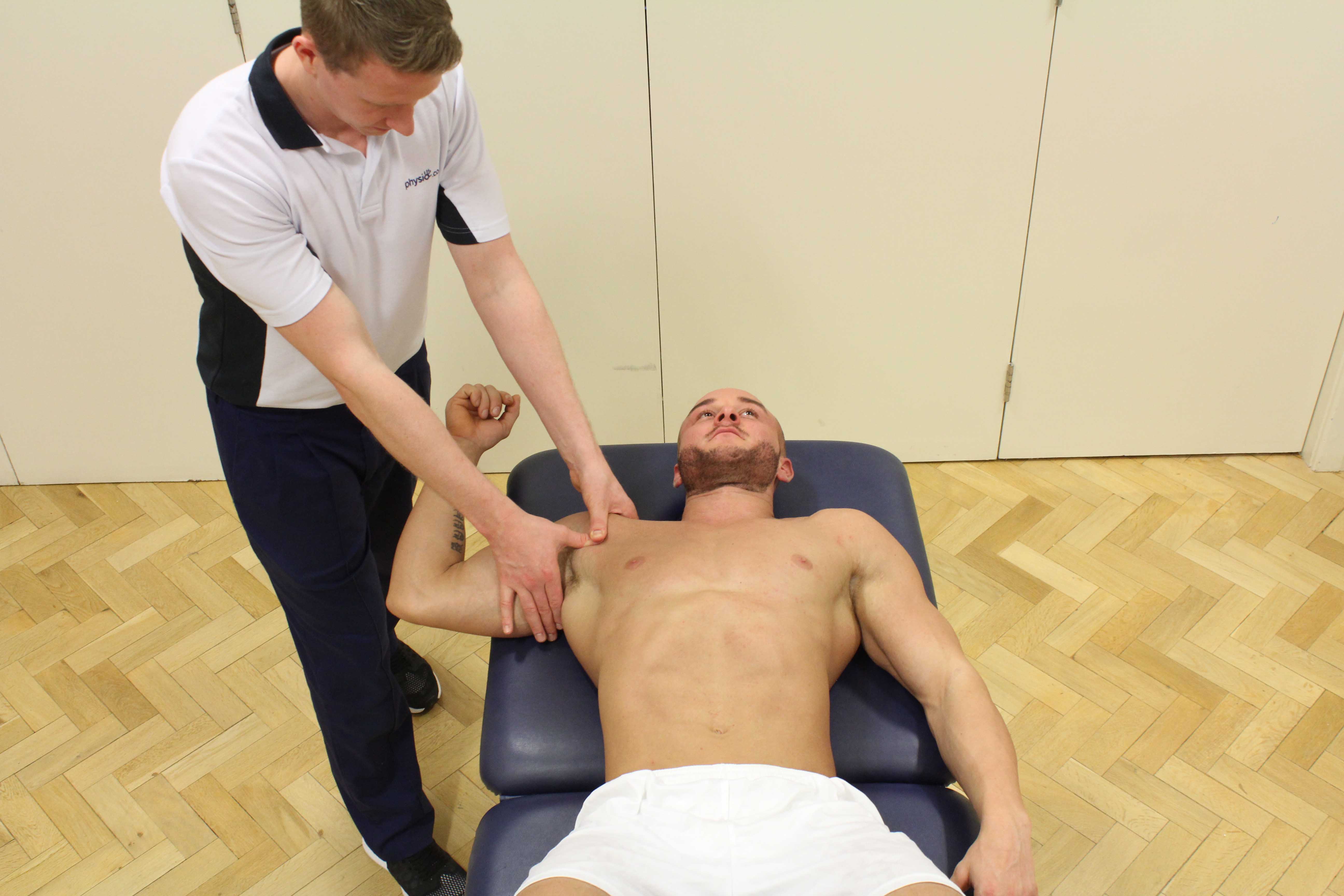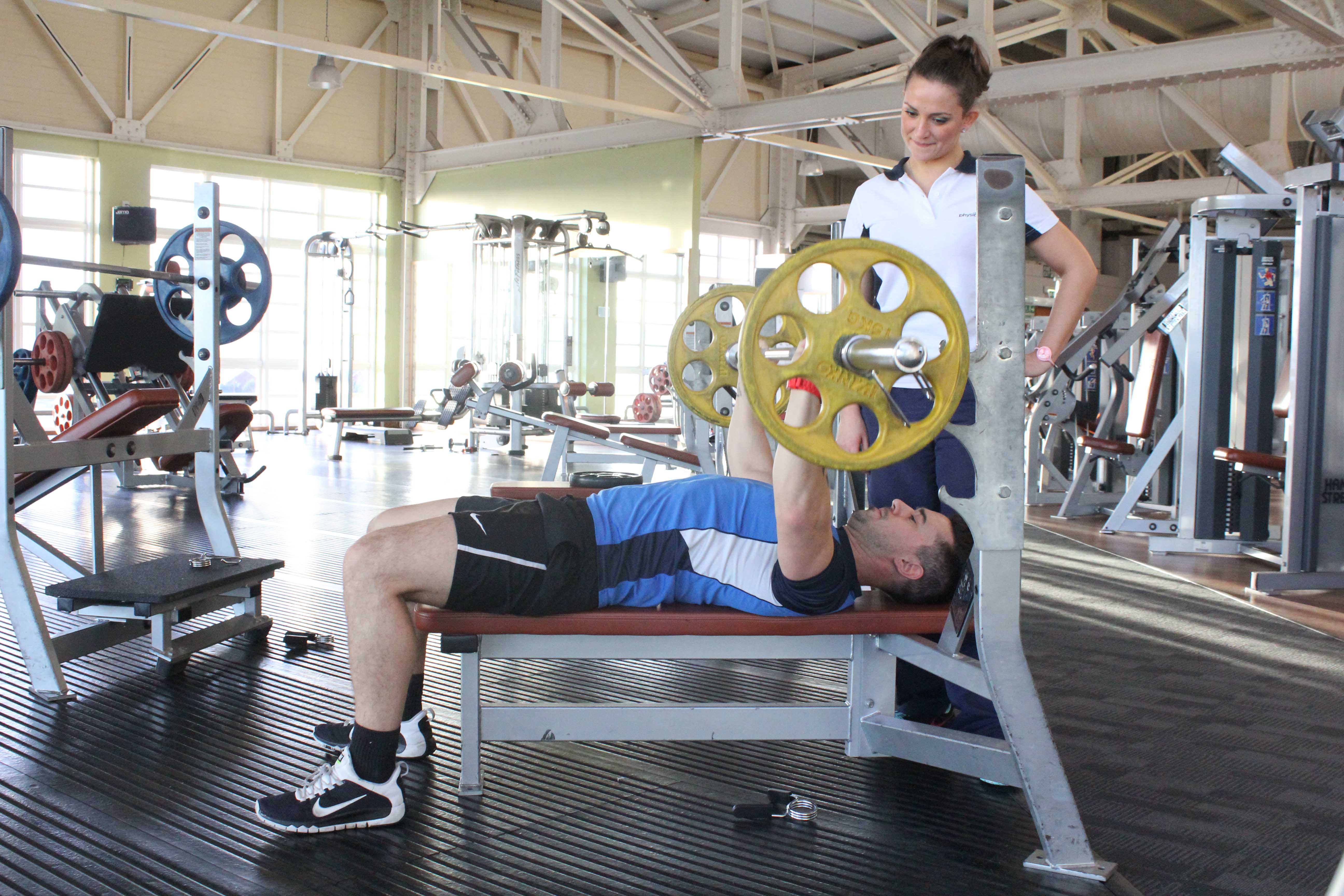What tietze’s syndrome?
Tietze’s syndrome is inflammation of the cartilage which makes up the costochondral joint. This joint connects the ribs and the breastbone (sternum). Tietze syndrome usually affects the upper ribs, especially the second or third ribs and results in localised swelling and discomfort. A physiotherapy should be followed if you have a diagnosis of tietze’s syndrome.
 Above: Soft tissue massage of the pectrol muscle by experienced therapist
Above: Soft tissue massage of the pectrol muscle by experienced therapistHow does tietze’s syndrome occur?
It is not known the exact reasons behind tietze’s syndrome although repeated coughing bouts and infections of the respiratory system may contribute to the condition. A direct trauma to the area may also cause inflammation of the costochondral joint.
Although the true cause of Tietze's Syndrome is unknown, however factors that may increase the likelihood of developing this condition include:
- Direct injury to the chest
- Repeated stress on coughing, sneezing, vomiting, or impacts to the chest. It has even been known to occur after hearty bouts of laughter. It can occur by over exerting or by an injury in the chest and breast.
Patients who have had radiation therapy to the chest/breast will often experience this syndrome which can occur shortly after therapy or years later. It is found more often in teens than adults.
 Above: Soft tissue massage of the chest muscles by specialist therapist
Above: Soft tissue massage of the chest muscles by specialist therapistWhat are the symptoms of tietze’s syndrome?
Symptoms of tietze’s syndrome include localised pain and swelling around the upper ribs and cartilage. These symptoms may be aggravated by coughing and sneezing. Other symptoms include:
What should I do if I have tietze’s syndrome?
Tietze’s syndrome can sometimes be mistaken for heart problems and therefore it is important to obtain an accurate diagnosis from your G.P to rule out any other conditions. Initially your doctor may prescribe you with anti-inflammatory painkiller or corticosteroids to help reduce the inflammation. In addition to this, physiotherapy is a very effective way to minimise the symptoms of tietze’s syndrome.
 Above: Trigger point massage applied to the chest muscles by a specialist MSK therapist
Above: Trigger point massage applied to the chest muscles by a specialist MSK therapistPhysiotherapy treatment for tietze’s syndrome.
Physiotherapy for tietze’s syndrome may include breathing exercises, electrotherapy such as ultrasound and cryotherapy (ice). You may also be provided with other strengthening and stretching exercises and soft tissue massage. Other important physiotherapy treatments include:
What shouldn’t I do if I have tietze’s syndrome?
If you suspect you may have tietze’s syndrome, you should not ignore your symptoms. You should avoid any activities that may aggravate your symptoms and try to use a supported cough if possible. Your physiotherapist will teach you this technique and others to help minimise your pain.
 Above: Progressive strength training for the chest muscles supervised by specialist MSK physiotherapist
Above: Progressive strength training for the chest muscles supervised by specialist MSK physiotherapistCould there be any long-term effects from tietze’s syndrome?
Tietze’s syndrome usually resolves with medication and a tailored physiotherapy programme relatively easily. If you ignore your symptoms, it may delay your recovery and the condition could persist.
To arrange a physiotherapy appointment call Physio.co.uk on 0330 088 7800 or book online.

 0330 088 7800
0330 088 7800

































